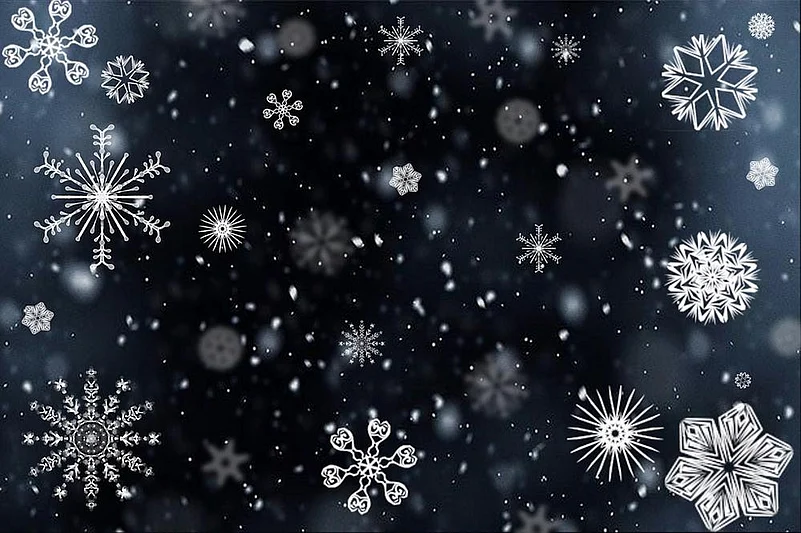So said John Milton, no mean poet himself, and it stands to reason that he would have rated a good book of poetry even higher. For poetry, as Kanwal Sibal notes in the preface to his perfectly named Snowflakes of Time, is not a matter of writing to order. The poetic muse is a demanding mistress, and she insists on inspiration. Which abounds throughout this book, making the reader’s heart leap up at times like Wordsworth’s when he beheld that rainbow, wilt at others in contagious sadness, and laugh out loud when swept along on a tide of smooth, sarcastic wit.
Advertisement
I shall not try to define whether Ambassador Sibal is a poet-diplomat or a diplomat-poet, for he has rendered such quibbling meaningless. Poetry seems to flow through him like his life-blood. His preference for rhyme and metre notwithstanding, he is equally at home in free verse – whether in the menacing, almost violent similies of The Torch of Nostalgia and Death of Winter, in the whirling, eddying ebb and flow of Stringed Music and The Raga, or the bitter resignation that permeates Sepia Prints. I am, however, at odds with him about this last; I stand by Mira Nair’s old shoe love in Monsoon Wedding, and WB Yeats’ faith, in When You are Old, in love defying age and wrinkles.
Advertisement
Whatever their style or genre, these poems are like the Sirens’ song in Homer‘s Odyssey, they grab you and do not let go. Plus, this book is like a deluxe buffet spread, there is something for every taste. The author being a very experienced diplomat, many might focus on the satirical insights and tongue-in-cheek sallies in Humour, the section dealing with matters political. I, though a member of the same diplomatic tribe, revelled in the earlier Moscow Musings, Memories, Reflections.

In these sections, there is a distinct undertone of sadness, of incipient melancholy, but always delicate, muted. The title poem flows smoothly, softly, like snowflakes falling on the palm of an outstretched hand. The discontent with the past is not acrid, it is tempered by sentiment. Exquisite turns of phrase abound: across the window of his mind , the denuded branches of time, crystals like particles of mind , from skies within him undefined.
My own favourite is from The Winter’s Secret , the stanza that inspired the book’s elegant cover:
He felt the sky within him fade
And light in pensiveness retreat,
Over the mental snow he made
A lonely trail of his own feet!
In Memories, sadness deepens into a sense of loss, the pain of what might have been, of unfulfilled hopes and desires that linger in the mind. Helpless questions in Memories Unbound become almost desperate, hopeless, in The Finger Tips of Memory and The Distress Call. The unbearable aridity of The Desert Within fades to muted resignation in Distance and a hollowness inside in Moisture in the Eye. The promise of a blooming relationship – so clear in Corridors – is abruptly fractured in The Tapestry, and ends in a tragic breakdown in No Road Ahead, a conclusion which I simply cannot accept. Even The Crow on the Balcony signals a fruitless wait for a visitor who never arrives.
Advertisement
Poets generally seem to prefer to sing of loss and unrequited longing than of joy and fulfillment. Perhaps this is why these memories are mostly steeped in nostalgic sadness. The lines, though, are lovely enough to make even unrelieved pain seem appealing.
Now comes familiar territory for an Indian diplomat - the murky, hypocritical, manipulative world of the Great Power bullies. Humour is awash with the black variety, as the author slices the international body politic with the sure touch of a sushi chef, and lays bare its dubious inner workings. Multipolarity, Multipolarity Bis, Double Standards. Counting 123 or the Cookery Deal- all drip with savage satire, but not one line in them can be contested.
Advertisement
Negotiation -Indian Style is a candid precis of the weaknesses in our national psyche - hesitation in going for the kill, readiness to be satisfied too soon with too little, a tendency to yield prematurely and, above all, the urge to be thought of as good, reasonable, patient – that have hobbled us in our dealings with global bullies. As I have always felt strongly , we are the perennial Pandavas in the Great Game against the rest.
Nowhere is this more evident than in our dealings with Pakistan, which Kanwal Sibal skewers in a series of acidulated poems, notably Kneeling for Diplomatic Slaughter and The Pet. It is as well that the despair these would engender in the reader is lightened by a comic take on The Birkin Bag!
Advertisement
One last point. Some might question Ambassador Sibal’s world view as too pessimistic. To them I would quote EM Forster, who saw the Greek poet Cavafy as standing at a slight angle to the universe. In this case, maybe it is Kanwal Sibal who is plumb straight, and the doubters who are at an angle!
(The writer is a retired Indian Diplomat)




















